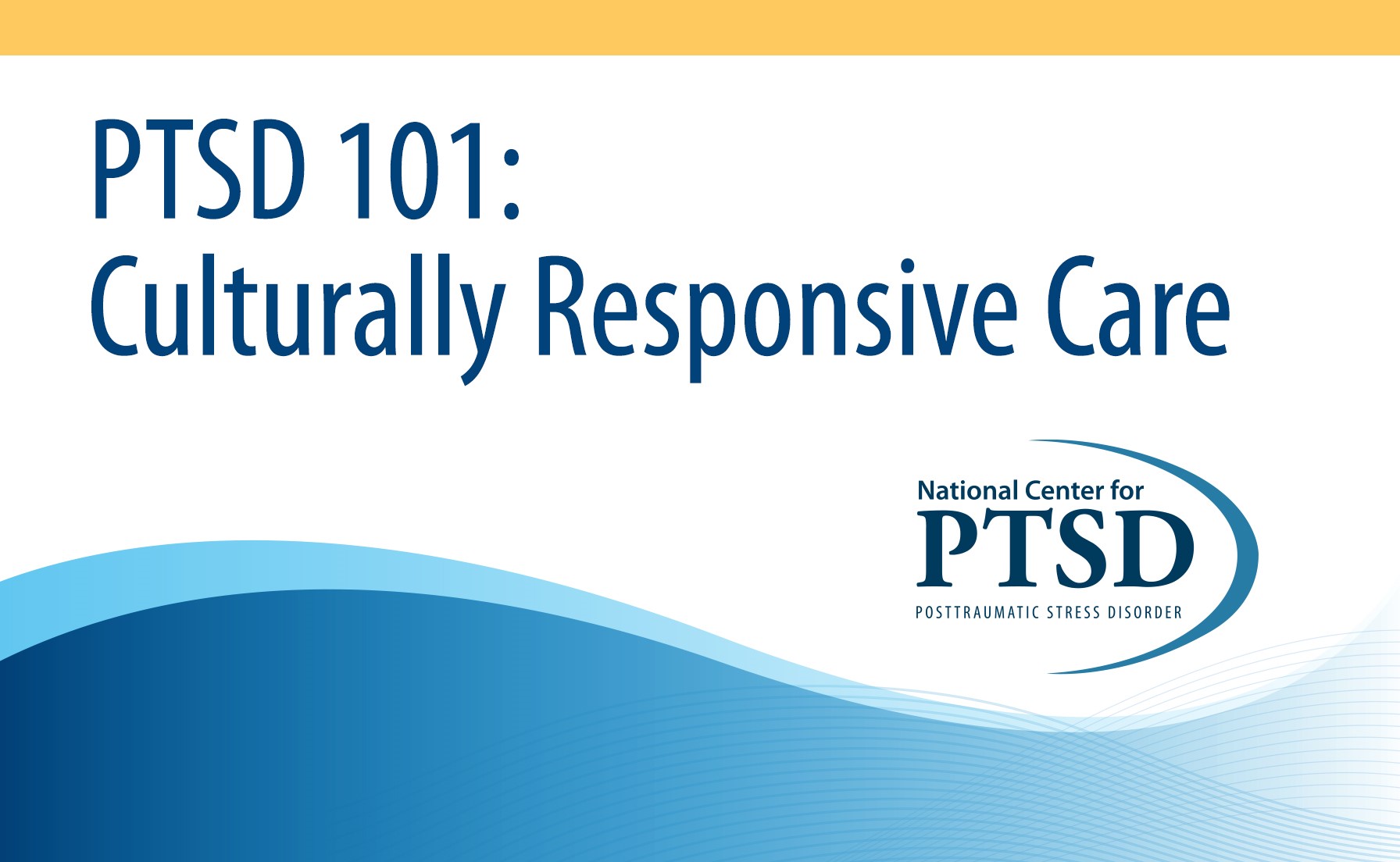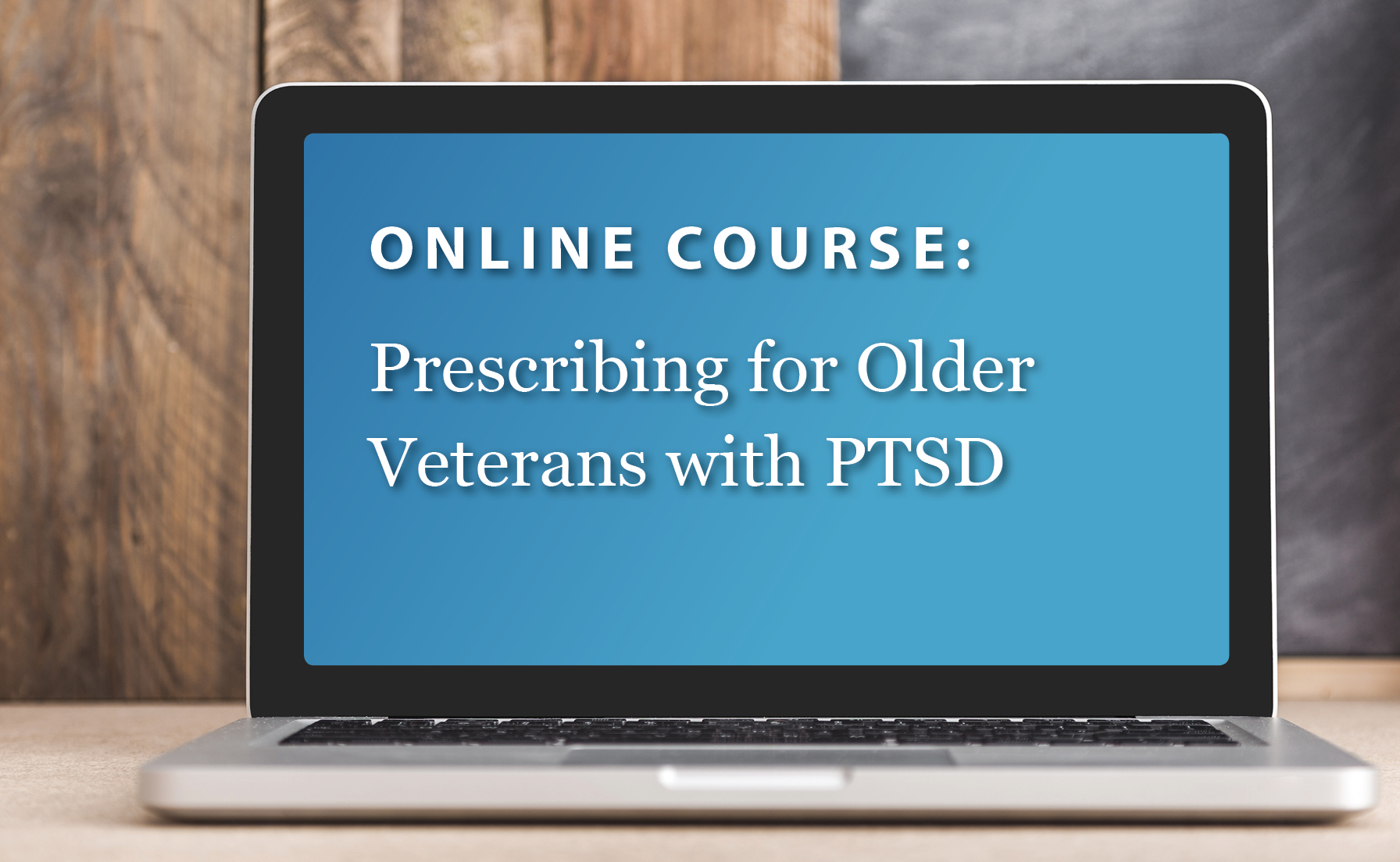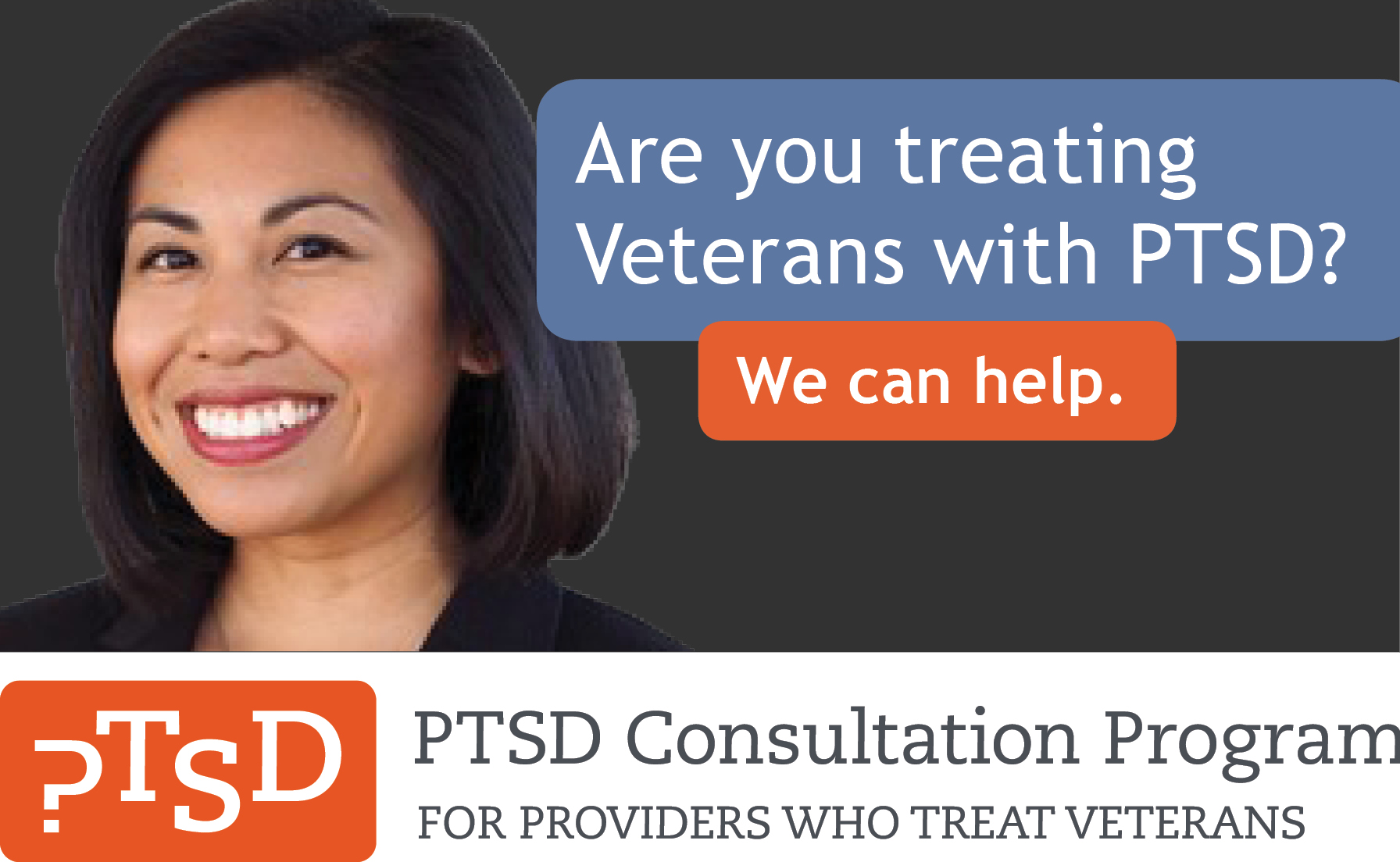PTSD: National Center for PTSD
Provider Guide to Addressing Veterans' Reactions to Large-Scale Traumatic Events
Provider Guide to Addressing Veterans' Reactions to Large-Scale Traumatic Events
Veterans may experience a range of challenging emotions related to large-scale traumatic events, such as wars, terrorism, mass violence or disasters. Veterans may have personal ties to the people or place where the events occur which can exacerbate these feelings. These events can also be a powerful reminder of Veterans' own experiences.
Common Reactions
Some common reactions include frustration, sadness, helplessness, fear and grief. Veterans may also feel angry or betrayed or may worry about the safety of people who are directly affected. They might question why the events are happening now and wonder how they will end. They may worry that the events could lead to another world-wide conflict or that they may be called back to service. Reactions can also be experienced as more general upset that they do not necessarily attribute to the recent events.
Those with mental health conditions like depression, anxiety or posttraumatic stress disorder (PTSD) may experience increases in symptoms. Some may cope through avoidant strategies like drinking more, using substances or isolating. Veterans may also experience more military and homecoming memories and more trouble sleeping. Some may become preoccupied with danger or feel like they need to prepare for the worst. In response, they may become overly protective, vigilant or guarded so that they can avoid being shocked by, or unprepared, for what may happen in the future.
Distress is a normal reaction to negative events, especially ones that feel personal. However, for some Veterans, these reactions may be overwhelming, continue for an extended period, or negatively affect functioning to the extent that intervention is indicated. Below are strategies to understand Veterans' reactions and help them through this challenging time.
Check In With Veterans
It is helpful to ask questions to recognize what each Veteran is thinking and feeling. Some may feel angry, some may feel worried or fearful, some may feel sad--so start from a place of no assumptions about what the Veteran is thinking or feeling.
- Begin the conversation broadly: "There has been much media coverage about what is happening. Would you like to spend some time today on your reactions?"
- Normalize reactions to large-scale traumatic events and begin a conversation focused on emotional reactions: "Many people have been experiencing strong feelings about these events. I wanted to check in and see how you have been doing during these very stressful times. How have you been feeling?"
- As a way to begin the conversation, you can ask if the Veteran is engaging in these conversations elsewhere and about their support system (or lack thereof): "Have you been having conversations about your reaction to the current events with others? In what ways have the conversations been helpful? Are there ways in which the conversations have been less helpful?"
- Another option is to tie the discussion in with the Veteran's treatment: "The news about what is happening can impact mental health in many ways. I'm wondering if you noticed changes in how you are feeling? Is this something you want to spend time working on today?"
- Give the Veteran room to explore how their past experiences (such as military service) or aspects of their identity (such as race, ethnicity, religion or sex) may be contributing to their reactions.
This interaction with you may be the Veteran's first or only opportunity to express thoughts and emotions. Give them (and yourself) room to reflect on their reactions. Take your time with the conversation, allow the Veteran to add to their narrative and experience their emotions. Reflect back to the Veteran what you hear to make sure you understand their reaction. The Veteran's reaction may change over time, so consider checking in over multiple appointments.
Respond to Veterans' Needs
Help Veterans Identify and Challenge Unhelpful Cognitions
Ask Veterans what upsetting thoughts they are having related to the large-scale traumatic events. It can be valuable to help Veterans recognize and reframe any unhelpful cognitions. What is happening is terrible but often thoughts can be restructured to be more balanced and less catastrophic. For example, they may be thinking, "These events are going to lead to World War III," or, "No one is safe" or "people can't be trusted." Providers can have a collaborative discussion to help Veterans come to less extreme and less painful conclusions. For example, asking, "How safe are you here?" or "Are there any people in your life that you can trust?" The ultimate goal is for the Veteran to come up with a more balanced, less distressing thought such as, "World leaders do not want a world war," "My family is currently safe where we are," or "Most people can be trusted."
Encourage Veterans to Engage in Activities They Find Meaningful
Encouraging Veterans to engage in activities they find meaningful can help them focus on their lives in the present and can help to reduce distress. Explore what matters most to Veterans across the many domains in which they function, which may include as an individual, a family member, a parent or a community member. Once Veterans identify important values, providers can help them set realistic short- and long-term goals consistent with these values and help them plan concrete activities to work toward these goals. These activities will not change the past or the things the Veteran cannot control, but they can help the Veteran feel like life is meaningful and reduce distress.
Some Veterans may find meaning by supporting people who were directly affected by the large-scale traumatic events. Veterans can look for opportunities to volunteer or make a donation.
Encourage Positive Coping
It is important to assess the Veterans' coping strategies (adaptive and maladaptive), resources and supports, and ongoing stressors. How might existing strategies be applied in this situation? Are they as helpful in times of crisis? Are there ways they could be adapted to meet current needs? Social support, including spending time with people who understand what the Veteran is going through, can be particularly important in buffering stress. Limiting time following news coverage or social media may be helpful. Make a plan with the Veteran about how to put their positive coping strategies into action to help them manage their negative reactions. Teach the Veteran a positive coming skill or share a coping self-help mobile app.
Conclusion
Large-scale traumatic events, whether in the U.S. or abroad, may be distressing for many Veterans. Some Veterans may have personal ties to the people who were directly affected which can exacerbate these feelings. For some, the events may serve as a traumatic reminder of their own military experiences. Veterans will differ in their reactions and needs, and these may change over time. Asking questions, listening and responding to the individual needs of each Veteran will help them through this challenging time. Providers are further encouraged to be aware of their own reactions to these events. Take time and space to process and reach out to colleagues, friends and family for support as needed.
You May Also Be Interested In

PTSD 101: Culturally Responsive Care
Understand and develop the components of a culturally responsive case formulation.

PTSD 101: Prescribing for Older Veterans with PTSD
Learn best practices for pharmacological treatment for older Veterans with PTSD.
























